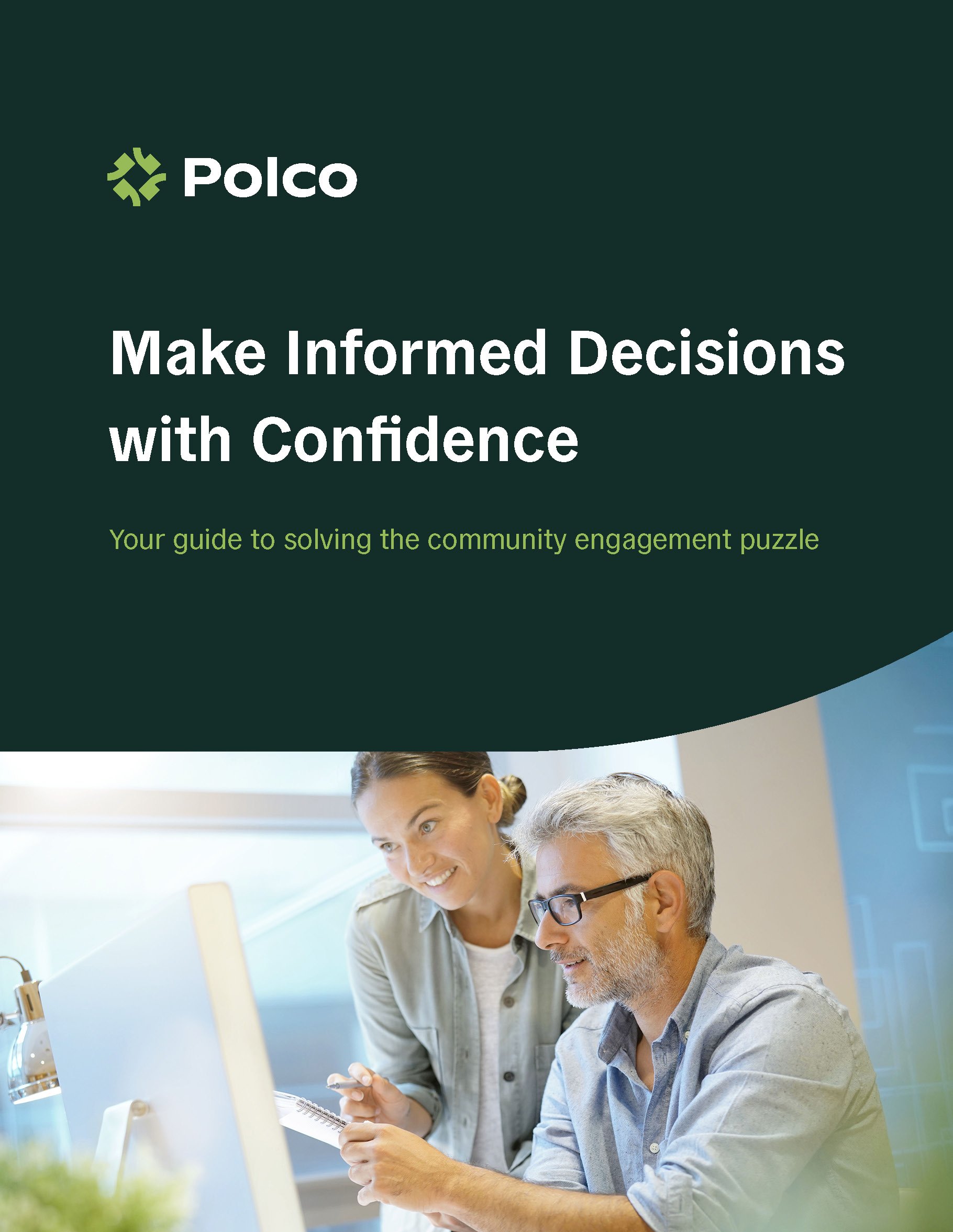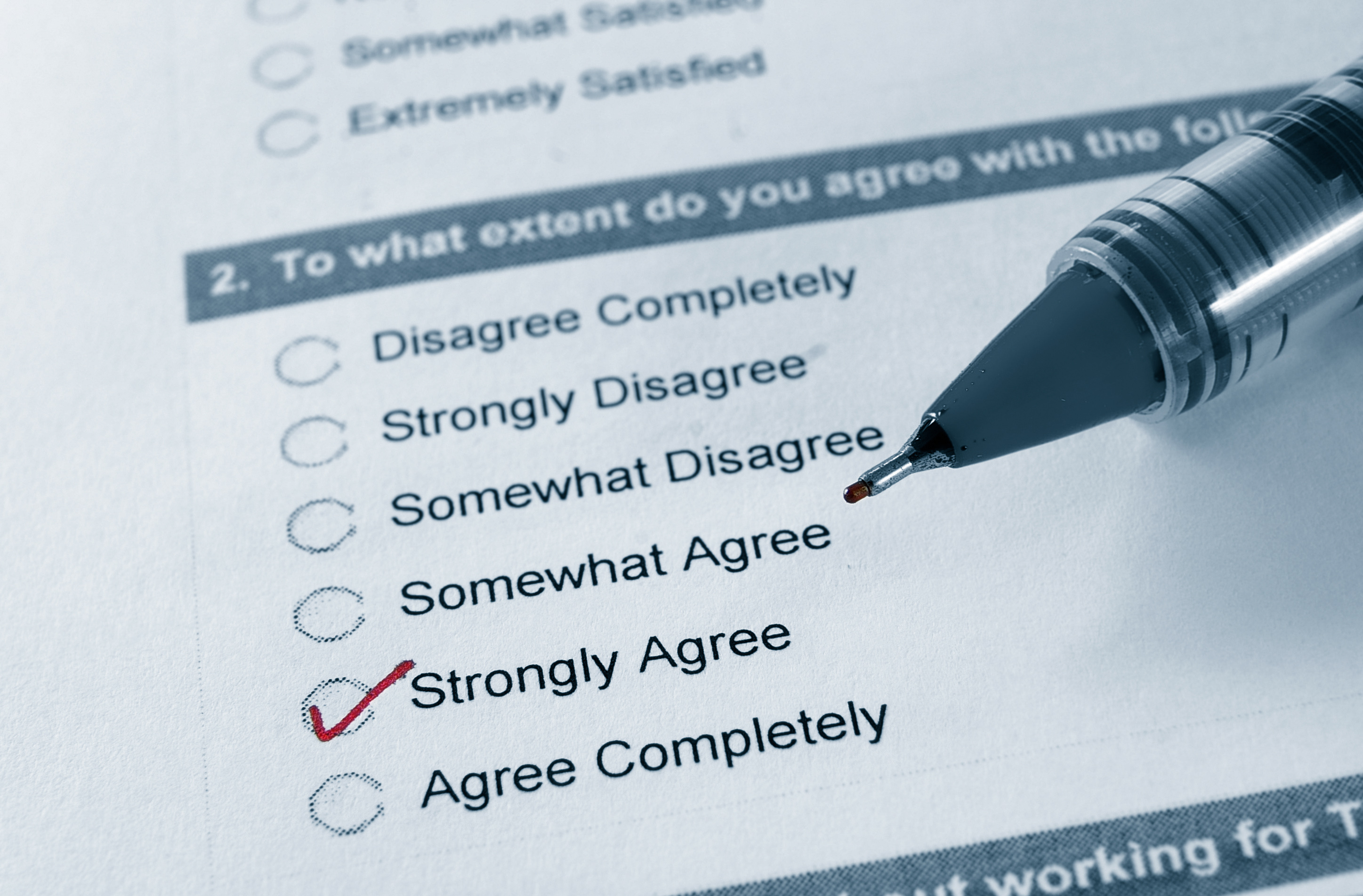So you’ve surveyed your community at least once. The experience revealed resident perspectives on a wide range of community aspects, from overall livability to service delivery. You identified areas your community excelled in and those that needed work. The data you gathered helped put together a smart and validated city plan. While that momentum went far, perhaps it’s now been a while since your last citizen survey. The question presents itself, a year or two down the road, should you survey your citizens again?
You may expect a research center to answer this with a resounding “Yes!” But National Research Center’s enthusiasm to work with you again aside, there are undeniably good reasons to conduct citizen surveys on a regular basis.
Whether you choose to survey every year or two, we’ve narrowed the list down to the top ten reasons to conduct The National Citizen Survey™ again.
- Benchmark Your Own Community. While the National Citizen Survey™ provides benchmark comparison data of more than 350 jurisdictions across the country, repeating the survey creates a powerful opportunity to compare your community’s performance to itself over time. Over the years, you will have evidence showing how you've made your community a better place to live.
- Track Your Progress. Regular surveys will show you trends over time that you cannot get with just one survey. These trend data will indicate areas of improvement and decline in your community from your residents’ perspectives.
- Keep Up with the Times. Every community changes over time. The character of neighborhoods continually evolves with new residents, changes in the work-force, different businesses and new issues to address. Survey results become old news all too soon, but a new survey will help city leadership remain relevant to the community as it today.
- Show Residents You Care. Asking for residents’ opinions shows them that you value their presence and input. Jurisdictions who then take positive action based on survey data prove they have both the desire and intent to better residents’ quality of life. Conducting a current citizen survey shows you care just as much now as you did in the past.
- Inform Budgeting. Every survey provides valuable data unique to your community that can be used to help with budgeting, planning and strategy. However, basing today’s plan on old data can be problematic. A new survey will more accurately depict what areas demand the attention of a new plan. Especially when times are lean, resident opinion can help focus resources to the areas that matter most.
- Identify Areas for Improvement. How do residents rate mobility this year compared to previous years? Conducting regular citizen surveys will show you the answer to this question and let you know which aspects of your community are seeing dips in resident ratings.
- Demonstrate Transparency. Successful surveys require city leadership to be transparent with their residents. Surveys facilitate a two-way flow of information. Broadcasting the results back to the community, even when they may be lower than you’d like, helps to foster trust in local government. Repeating the survey process and maintaining an openness with the public each time shows your community that you are a dynamic and learning organization.
- Celebrate New Successes. It was nice to see some high ratings in your last citizen survey. It’s even nicer to see lower ratings rise. Jurisdictions who conduct The National Citizen Survey™ more than once are eligible to receive a Voice of the People Award in Transformation - nationally recognizing excellence in efforts that lead to higher ratings.
- Encourage Resident Engagement. Repeating the survey process over time cultivates a culture of engagement. Asking residents for their perspectives is one way to keep them engaged in city affairs.
- Stay on the Same Page. The more city leadership surveys constituents, the more elected official and resident perspectives become aligned. Only through regular, open communication can residents and city leaders come to a better understanding of each other. Citizen surveys help to do just that.
Related Articles
National Research Center, Inc. ( NRC ) is a leading research and evaluation firm focusing on the information requirements of the public sector, including non-profit agencies, health care providers, foundations and local governments. Visit our home on the Web at www.n-r-c.com. Check out our blog for more news, tips and human-interest stories from NRC.






